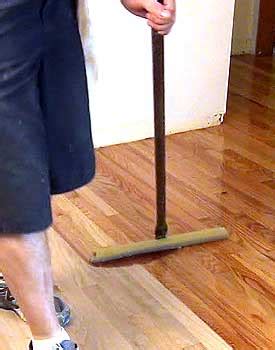The perfect hardwood floor finish can elevate the entire aesthetic of a room, making it look warm, inviting, and sophisticated. However, achieving this perfect finish requires more than just a great product – it also demands the right tools, particularly a high-quality applicator. In this article, we'll delve into the world of hardwood floor finish applicators, exploring what makes a good one, how to choose the right tool for your project, and highlighting some of the best applicators available in the market.
Understanding the Importance of a Good Applicator
A good applicator is crucial for a uniform and professional-looking finish. It ensures that the finish is applied evenly, without streaks or puddles, which can be difficult to correct once they've dried. Moreover, the right applicator helps to prevent waste by allowing for precise control over the amount of finish applied.
Types of Applicators
There are several types of applicators available, each suited to different types of hardwood floor finishes and personal preferences.
Lambswool Applicators
- Characteristics: These applicators use natural or synthetic lambswool. They are excellent for oil-based finishes and can produce a smooth, even coat.
- Benefits: They offer great absorption and distribution of the finish, making them ideal for large projects.
- Drawbacks: They can be messy and may leave behind lint or fibers.
Foam Applicators
- Characteristics: These are made from foam and are typically used with water-based finishes. They are easy to clean and reuse.
- Benefits: Foam applicators provide a smooth finish and are less likely to leave streaks or marks.
- Drawbacks: They might not hold as much finish as lambswool applicators, requiring more dips into the finish.
Microfiber Applicators
- Characteristics: Made from microfiber cloth, these applicators are versatile and can be used with both oil-based and water-based finishes.
- Benefits: They offer excellent absorption, are easy to clean, and can be reused multiple times.
- Drawbacks: The quality can vary significantly between brands, and some might leave behind fibers.
Choosing the Right Applicator
When selecting an applicator, consider the type of finish you're using, the size of your project, and your personal preference for application method. If you're working with oil-based finishes and prefer a traditional approach, lambswool might be the way to go. For those using water-based finishes and seeking ease of use and cleanliness, foam or microfiber applicators could be more suitable.
The Best Hardwood Floor Finish Applicators
Here are some of the best hardwood floor finish applicators in the market, each offering unique benefits and suited to different needs:
1. Zinsser Lambswool Applicator

- Benefits: Excellent for oil-based finishes, offers a smooth application process.
- Drawbacks: Can be messy.
2. Purdy Foam Applicator

- Benefits: Ideal for water-based finishes, easy to clean and reuse.
- Drawbacks: Might not be as absorbent as lambswool.
3. Minwax Microfiber Applicator

- Benefits: Versatile, easy to use, and clean.
- Drawbacks: Quality can vary.
Tips for Perfect Application
- Preparation is Key: Ensure your floor is properly cleaned and prepared before applying the finish.
- Test First: Always test the finish and applicator on a small, inconspicuous area.
- Work in Sections: Divide the floor into sections to maintain even coverage and prevent streaks.
- Maintain the Right Temperature and Humidity: This ensures the finish dries properly and evenly.
Conclusion
Achieving a perfect hardwood floor finish is not just about the finish itself, but also about the tools you use. A good applicator can make all the difference, ensuring your floors look professional, polished, and beautiful. Whether you're a DIY enthusiast or a seasoned professional, investing in the right applicator for your project can save you time, effort, and potential headaches down the line.
Gallery of Best Applicators






FAQ Section
What is the best type of applicator for oil-based finishes?
+Lambswool applicators are generally considered the best for oil-based finishes due to their excellent absorption and distribution of the finish.
Can microfiber applicators be used with oil-based finishes?
+Yes, microfiber applicators can be used with oil-based finishes, but they might not perform as well as lambswool applicators.
How do I choose the right applicator for my hardwood floor finish?
+Consider the type of finish you're using, the size of your project, and your personal preference for application method.
